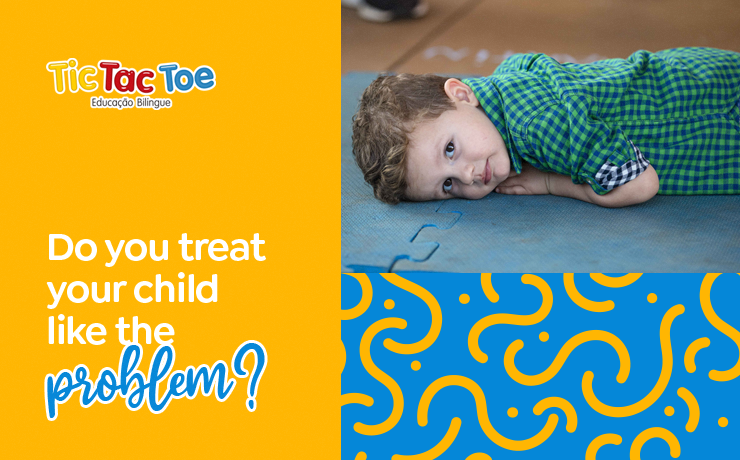Here’s the scenario.
The morning is flying by. You need to get your 5-year-old ready for school, but he’s got different plans. He was slow to get up. He couldn’t find anything he wanted to wear. He didn’t want to eat breakfast. You’re finally about to leave, and your patience is at it’s absolute limit. His final challenge? Refusing to put his shoes on. And you’re about to lose your mind!
If you have a child, this is something you’ve experienced many times in your life. More than you could count. In these moments, we can easily get frustrated with our children. When you’re in this kind of chaotic mess with your child, it’s easy to forget that you and your kid are on the same team. That can be a big problem.
Let me explain.
We deal with challenges all day long. People, and parents in particular, are constantly solving problems and completing tasks. And that’s great. It’s an essential part to navigating life.
So what’s the issue?
We often treat our children like problems to be solved.
Children are challenging. It’s easy to find yourself the battle of you versus your kid. And when this happens, your plan goes from “how can I help my kid through this” to “how can I get to the end where my kid does what I want them to?” When you treat your child like this, they will get defensive- maybe even combative. And the power struggle with you kid is on.
Try this reframe (inspired by Dr. Becky):
Instead of seeing the situation as you versus your kid, frame the situation as you and your child versus the problem. In this case, the challenge of you and your son getting to school on time. Your kid isn’t a bad kid, they’re just having a hard time.
Now that you are on the same team, you can work together with your kid to help them through this tough moment. Even better, you can work together to figure out how to handle the problem better the next time. In this scenario that could look like many things. Going to bed earlier. Picking out clothes the night before. Making breakfast together.
It doesn’t really matter what the solution is, the important thing is that you work together to solve it. This provides an opportunity for connection and understanding, instead of separation and frustration.
There’s more than one way to show up for your child, and our ability to reframe to the positive can be a game changer. When we do this, we are calmer parents. When we are calmer parents, we create a space for calmer children, and we more often get the result we’re looking for.
It’s not effective to try to bully your children to the finish line. They need supportive leadership, and only you can provide that.
Today’s Quote
“Solving problems together? Yes, indeed. You and your child are going to be allies, not adversaries. Partners, not enemies.”



